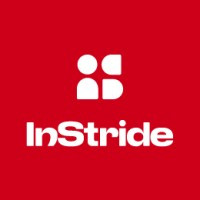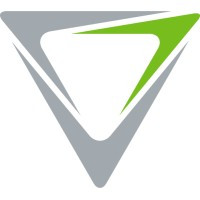Job Summary
The Data Engineer II will be an integral member of the Reliance IT Data Integration team and will be expected to clean, prepare, and optimize data for consumption. The Data Engineer-II will work with the team to create high end data and analytics driven ETL solutions leveraging Informatica Data Management Cloud (IDMC), Amazon Web Services (AWS), Big Data tools and technologies. The Data Engineer II will collect and curate data from disparate sources to perform data interrogation, develop analytical tools to utilize the data pipeline, providing actionable insight into key business performance metrics. The Data Engineer II will communicate with stakeholders and conduct research to develop a comprehensive understanding of relevant business needs and requirements. In this role, the individual will identify and collect structured and unstructured data from various sources, evaluate the data to ensure that they meet analytic needs, and prepare the data for analysis. The role will require business and technical requirements gathering and documentation (BRD, PRD) experience, as well as data workflow design and presentations
Function in the Job
Sedentary Work- Exerting up to 10 pounds of force occasionally, and/or a negligible amount of force frequently or constantly to lift, carry, push, pull or otherwise move objects, including the human body. Sedentary work involves sitting most of the time. Jobs are sedentary if walking and standing are required only occasionally, and all other sedentary criteria are met.
Job Function
Technical Design- Able to identify, analyze, specify, design, and translate functional design to technical design. Create and document technical designs for medium to high complexity solutions that may include integration with external systems.
-
Create and document technical designs for medium to high complexity solutions that may include integrations with external systems.
- Facilitates peer technical design review.
-
Design systems that span multiple technologies/platforms
-
Define and documents work processes/standards.
-
Create and apply design standards across all applications.
-
Design solutions to meet performance requirements and scalability expectations.
-
Conduct data analysis and modeling to design medium to complex systems utilizing multiple technologies (may have a specific area of expertise), including integrations with external systems.
-
Collect and curate data from disparate sources to perform data wrangling to clean, prepare, and standardize data for consumption.
-
Design and create framework, program controls and services that can be utilized by other developers in creation of applications.
-
Apply mathematical principles or statistical approaches to solve complex problems in scientific or applied fields.
Data Modeling - Able to write, test, debug, and maintain data workflows for end-user adoption, productivity improvement and efficiency.
- Analyze data to discover and interpret patterns, trends, and variances.
-
Assist with technical design.
-
Troubleshoot and resolve technical issues.
-
Develop knowledge of the company's applications.
-
Facilitates peer code reviews.
-
Research, analyze, and identify data requirements and business processes.
-
Develop data science models to automate manual processes and to scale pipelines.
-
Derive insight driven outcomes while utilizing the latest technologies and programming languages.
-
Extract and transform data through normalization, field mapping, merging, and other techniques to standardize and prepare data for analysis.
- Collaborate with cross functional teams to identify and solve business intelligence and data issues.
-
Proactively enhances systems for stability, efficiency, scalability, and robustness.
-
Develops, sponsors, and supports the introduction of new and improved methods, products, procedures, and technologies.
- Devise, makes recommendations, and guide implementation of corrective and/or preventive actions.
-
Suggest better alternatives and solutions to given requirements based on experience.
-
Construct new data assets by combining data from multiple sources, which may be ambiguous, incomplete, or inconsistently formatted.
-
Advanced knowledge of mathematical and statistical algorithms to apply toward decision analytic modeling.
Requirements Elicitation – Ability to identify a desired future state that addresses a business problem.
- Effectively uses interviewing skills to elicit, identify, and document business requirements.
-
Precisely and consistently captures business problems.
- Prioritize requirements to identify the most critical needs.
-
Uncover needs and value drivers that business partners and end users would not be able to articulate on their own.
-
Articulate and incorporate extensive business knowledge into requirements.
-
Obtain agreement and confirm understanding by clearly interpreting business requirements to the business stakeholder.
-
Drive consensus for a desired future state that meets the business problems and enterprise objectives.
- Influence stakeholders by clearly interpreting the future "to be" state.
Requirements Management and Analysis – Ability to define, document, and manage business requirements to the smallest set that will provide the biggest impact in advancing business objectives.
-
Accurately translates business requirements into functionality.
-
Manage requirements to meet business expectations.
-
Document the current business process and the desired “to be” state to ensure efficient operation and integrity of data flow.
- Prioritize business requirements based on business needs.
-
Understand business process complexity.
-
Assess the risks of various solutions by looking across multiple applications.
-
Recommend changes to multiple business processes and communicate the changes and the “to be” state in business terms to business partners.
-
Influence business partner requirements in support of enterprise objectives.
-
Recognize the implications of business strategy changes.
-
Assist team members and departments with recommendations for data-driven development.
Provide Accurate Project Effort Estimates - Ability to quantify and meet individual and project phase level efforts.
-
Manage ambiguity, meet and create accurate project effort estimates for their assigned tasks.
-
Understand, consider, and communicate interdependencies for project estimates.
- Adhere to RTS project methodology throughout project lifecycle.
-
Accurately identifies project-specific risks through the software development lifecycle.
Adherence to Standards - Ability to create solutions that adhere to and incorporate RTS standards.
-
Apply and use information and technology standards in solution design.
-
Adhere to project management methodology.
- Identify opportunities for creating reusable enterprise services.
-
Obtain key inputs from Enterprise Architecture to ensure compliance and exception management.
- Identify commonalities and suggest a consistent approach across projects.
-
Analyze, recognize, and recommend data handling standards and data governance policies
Required Skills
-
Bachelor’s degree in computer science, Data Science, Mathematics, or equivalent work experience in a related field required.
- 4+ years of relevant experience in design, execution, and the use of a wide array of data analysis techniques and tools in designing solutions required.
-
Advanced experience in Informatica Data Management Cloud (IDMC) required.
-
Experience with programming languages such as Python, R, etc. required.
-
Experience with relational SQL and NoSQL databases required.
-
Experience with AWS GLUE ETL and AWS Analytics Services: Lambda, Step functions, EMR, Athena preferred.
-
Must be self-motivated and able to work independently, with minimal supervision and as part of a team.
-
Detail oriented with excellent interpersonal communication skills (verbal and written), with the ability to interact with all levels of an organization.
-
Excellent customer service skills.
-
Excellent analytical skills: expertise in statistical and data science principles and methods.
-
Advanced experience in data quality, data wrangling, cleansing, and standardization required.
-
Experience implementing and working with on-premise and cloud infrastructure required.
-
Strong project management and organizational skills. Experience using a version control system is a plus (GitHub, Subversion, Azure Dev Ops).
-
Proven history of delivering analytic solutions to solve complex problems using a data-driven approach and technical innovation. Demonstrated success in interpreting analytic output and providing strategic recommendations
Compensation Range
The anticipated compensation for this position is USD $106,000.00/Yr. - USD $146,000.00/Yr. depending on experience, qualifications, and location.
Physical Requirements
Stand or Sit(Stationary position), Walk(Move, Traverse), Use hand/fingers to handle or feel (Operate, Activate, Use, Prepare, Inspect, Place, Detect, Position), Talk/hear(Communicate, Detect, Converse with, Discern, Convey, Express oneself, Exchange information), See (Detect, Determine, Perceive, Identify, Recognize, Judge, Observe, Inspect, Estimate, Assess), Reaching, Repetitive Motion









